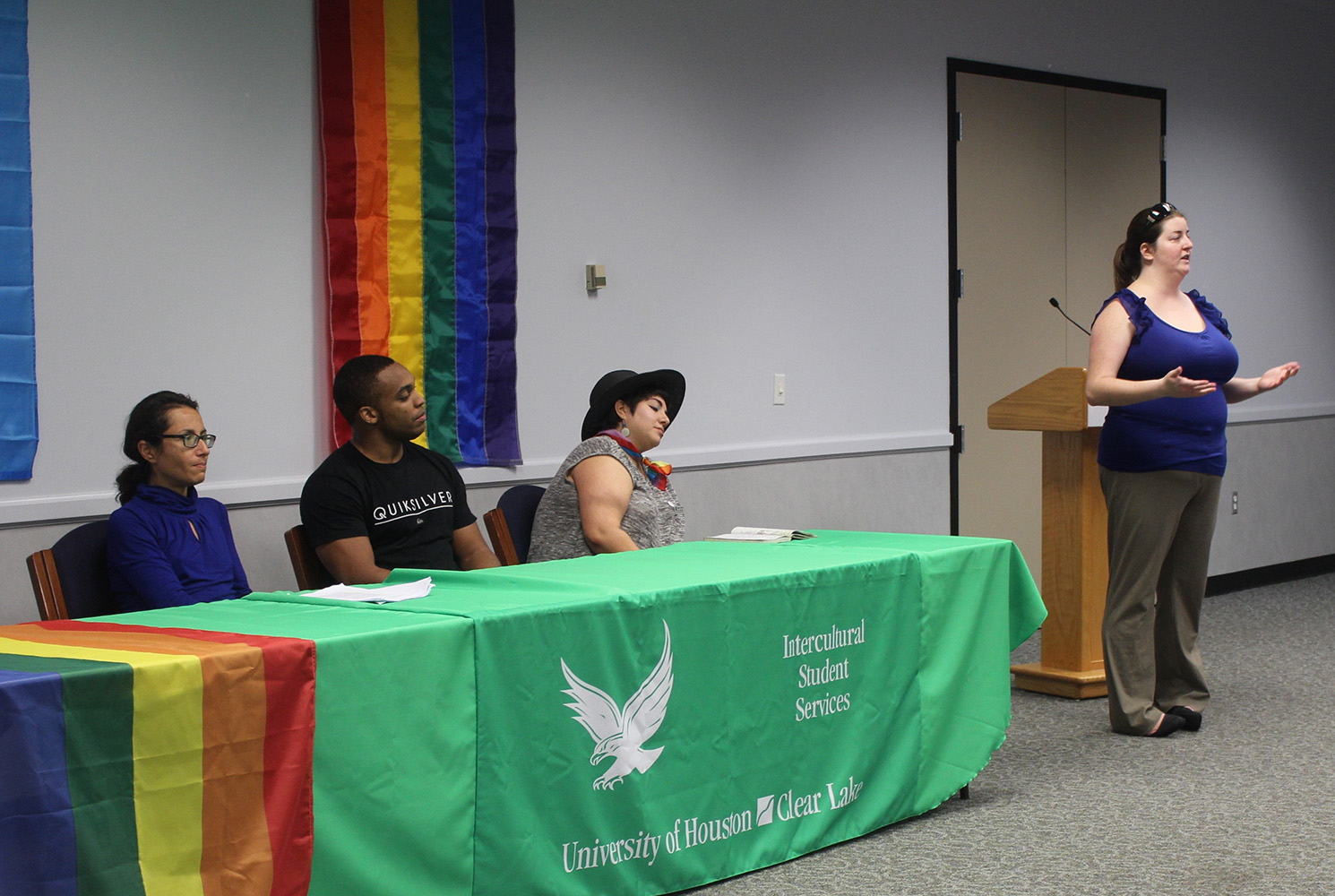
Acceptance, safety vital to LGBTQ college students’ success
Every new college student feels anxiety about achieving success and finding their place, but LGBTQ students often face unique challenges and fears – including worries about their safety. For these students, it’s important that colleges and universities show they care, says new University of Houston-Clear Lake Coordinator of Women and LGBT Services Ashley Green.

“The best thing universities can do to support their LGBTQ students is to take steps to make them feel safe and welcome as members of the campus community,” said Green, whose position is part of the UHCL Office of Intercultural Student Services.
Students who identify as lesbian, gay, bisexual, transgender or queer/questioning are a diverse group, and there’s no one-size-fits-all approach to support, Green said. The transition to college can be particularly difficult for students who must decide whether to disclose their sexuality to others.
“Some may experience lack of acceptance from new roommates or classmates, some from professors. Some might experience verbal or physical abuse from their peers. For those experiencing anxiety and depression, many feel they cannot talk to mental health professionals for fear that those individuals will not be knowledgeable about their identity,” she said. “And of course all of this is on top of the challenges all students potentially face when entering a university setting – adjusting to college-level classes, dealing with financial issues, etc.”
Specific actions that show support can include responding effectively to discriminatory actions, offering LGBTQ-friendly spaces, such as gender-neutral bathrooms, and organizing and attending LGBTQ activities and events, she said.
As part of UHCL’s efforts, Green’s office offers Safe Zone Ally training, a program that educates faculty, staff and students about supporting and advocating for LGBTQ individuals. Those who complete the training can post a sign on their office door identifying themselves as allies. About 95 current faculty and staff have completed the training following a series of the workshops this summer, with more scheduled for the fall.
A student organization at UHCL called the LGBTQ Student Coalition, formerly known as Unity Club, is also striving to support the LGBTQ community, said education major Hunter Forsythe. In addition to updating the club’s name, student organizers have big plans going forward to increase support, awareness and visibility for LGBTQ students.
“It’s an exciting prospect for me, and I have high hopes that it will help members and allies of the community to come forward and build a strong and much-needed presence on campus,” he said.
Forsythe echoed thoughts that students can have a variety of needs when attending college, but he’s pleased by the variety of support at UHCL.
“I believe that there are an incredible number of resources for students of all walks of life at UHCL, especially in the Office of Intercultural Student Services. ISS in particular serves international students, first-generation college students, women and LGBTQ students, and various cultural and ethnic groups,” he said.
He also noted UHCL’s academic support centers and Career Services as other important resources. Counseling Services offers both an LGBTQ support group and individual counseling, which can be vital to mental and emotional health, he said.
“It is the combination of these resources and the willingness to truly help our students that are UHCL’s greatest benefits to students in this regard,” he said. “I would advise any student beginning college to get involved anywhere they can and find the support they need, whatever that looks like for them.”
Green, who holds a Master of Arts in Women’s Studies and a graduate certificate in LGBT studies from San Diego State University, joined UHCL this summer and said the university has taken several important steps to be more inclusive and supportive.
“The Safe Zone Ally training program has been in place since 2010, the staff in Counseling Services is extremely knowledgeable about LGBTQ issues and the university has created a system so that transgender students can use a preferred name even if they have not yet been able to legally change their name and gender,” said Green.
As growth at UHCL draws a larger and increasingly diverse student body, Green said it’s more important than ever to maintain awareness of issues that impact LGBTQ students in regards to visibility, services, facilities and housing.
To learn more about services at UHCL’s Office of Intercultural Student Services, call 281-283-2575 or email Green at greenas@uhcl.edu. More information on other campus resources and the university as a whole is available at www.uhcl.edu.
